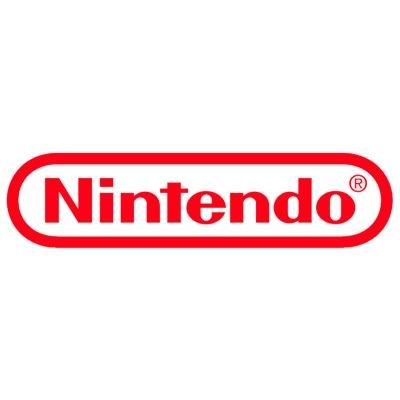The articles, “IT doesn’t matter” and “The end of corporate computing” were written by Nicholas G. Carr, a former executive editor of the Harvard Business Review. In both articles, Carr writes and speaks on technology, business, and culture. In 2005, Optimize magazine named Carr one of the leading thinkers on information technology for his work. In 2007, eWeek named him one of the 100 most influential people in IT.
The main argument of the articles is that IT is becoming a utility and that is why companies should not consider it as a strategic tool or source. Carr compares IT with electricity and considers IT as a commodity that is a cost of business, which does not create any competitive advantage.
 one of the IS components, including process, people, and structure. Commonly, companies use their IS as a strategic tool to create competitive advantages. It is possible that Carr may be confused with the differences between IS and IT and does not realize that IS, not IT gives companies a competitive advantage. A great example to support this argument is the huge success of two big companies that used IS to create competitive advantage. Michael Dell, founder and CEO of Dell Computers, Inc., challenged his team to develop a model that enabled a company to sell Dell customized computers directly to customers online. (Piccoli, G., 2008: 6). Harrah’s Entertainment is the largest casino resort operator in the world. In the mid-1990s, Harrah’s invested over $100 million in its’ IS that enabled its new positioning, financial success and improved customer service. (Piccoli, G., 2008: 6). Its new business intelligence
one of the IS components, including process, people, and structure. Commonly, companies use their IS as a strategic tool to create competitive advantages. It is possible that Carr may be confused with the differences between IS and IT and does not realize that IS, not IT gives companies a competitive advantage. A great example to support this argument is the huge success of two big companies that used IS to create competitive advantage. Michael Dell, founder and CEO of Dell Computers, Inc., challenged his team to develop a model that enabled a company to sell Dell customized computers directly to customers online. (Piccoli, G., 2008: 6). Harrah’s Entertainment is the largest casino resort operator in the world. In the mid-1990s, Harrah’s invested over $100 million in its’ IS that enabled its new positioning, financial success and improved customer service. (Piccoli, G., 2008: 6). Its new business intelligence  system allowed the company to collect customer information and dramatically improve its customer service and gain customer loyalty. Though business intelligence software is available to other companies, the success factor for Harrah’s Entertainment was the way the company analyzed and used the collected information. These two examples show that initiatives of both companies were IT driven, and both companies created competitive advantages on the market that still cannot be achieved or replicated by competitors.
system allowed the company to collect customer information and dramatically improve its customer service and gain customer loyalty. Though business intelligence software is available to other companies, the success factor for Harrah’s Entertainment was the way the company analyzed and used the collected information. These two examples show that initiatives of both companies were IT driven, and both companies created competitive advantages on the market that still cannot be achieved or replicated by competitors.

IT Does Matter
Carr argues that because IT management is becoming “boring”, companies should no longer aggressively seek to gain competitive advantages, but rather manage costs/risks very carefully. If this were a commonly accepted business practice, companies such as Facebook, YouTube, and Google may have never achieved the success that they all enjoy today. For all three businesses, initial investments were made and millions of dollars in net losses accrued before each took off to in their respective industries of social networking, video reproduction, and online search engines. Each company used IT differently to propel them to where they are today.
Facebook replicated a social networking system very similar to MySpace but directed its attention to a new market, college students. Originally, it was only offered to students at Harvard University because that was where its creator, Mark Zuckerberg, was enrolled. After it gained popularity, it spread to other Ivy League schools, and eventually to every college in the country that wanted to join the social network. Since then, it has continued to grow and anyone with an email address over the age of 13 can now sign up. Currently, the initial $200,000 investment has turned into an estimated net value of over $1 billion dollars (BusinessWeek).![]()
It took an $11.5 million investment to start up YouTube in February of 2005, and currently their net worth is over $2 billion dollars (BusinessWeek). Unlike Facebook, YouTube already had a target market, so to become more successful their strategy was to use IT to change their relationship with their users. Originally, only registered users were able to access the site, but they changed the parameters to allow anyone to view posted videos, which created much more site traffic, which in return boosted advertising and revenues. ![]()
The largest of the three, Google, used IT to create alliances and partnerships with their users and to this day, continue to grow. Google was originally a privately owned and operated company but in 2004 they went public, with stock shares opening up for the first time. Currently estimated at over $23 billion dollars, Google’s success shows that Carr’s theories that IT does not matter and that companies should not aggressively seek competitive advantages by taking some business risks is absurd. As long as businesses continue to operate, IT Does Matter and will continue to matter for their success!
Aijan Isakova
Dan Campagna
Etteh Enobong
MBAMS640



